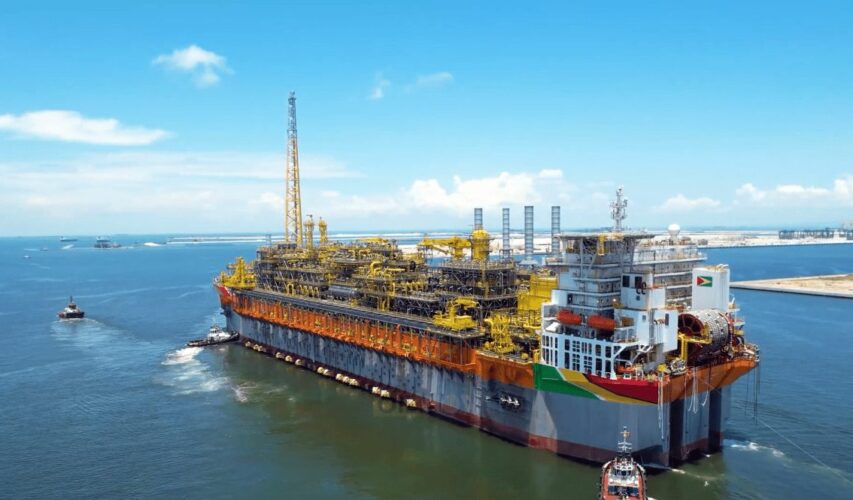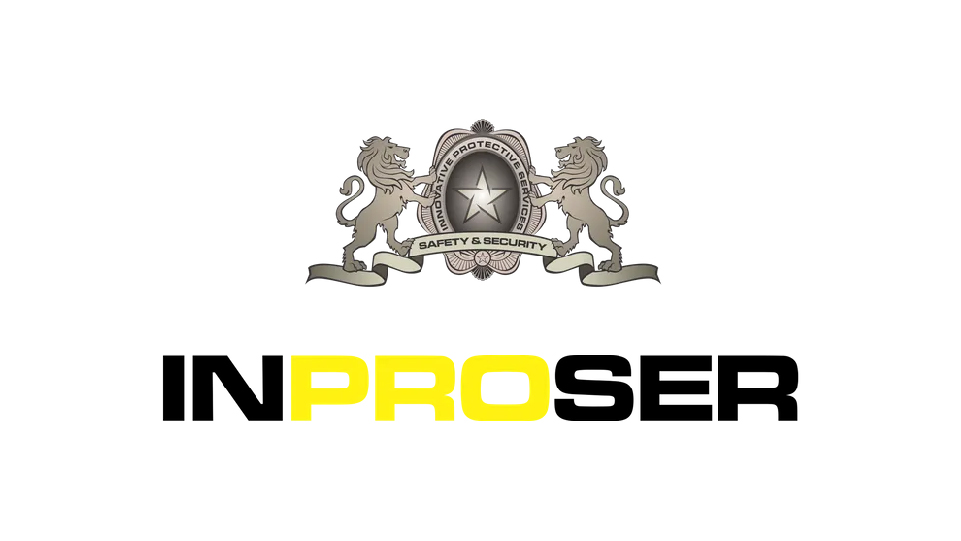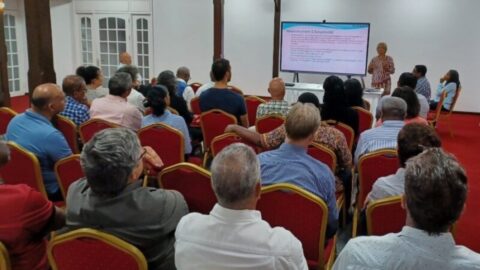Guyana’s Oil Deal with ExxonMobil raises concerns over inflated project costs
Guyana’s Oil Industry Under Scrutiny: Unraveling the Complexities of ExxonMobil’s Production Sharing Agreement
Guyana’s 2016 Production Sharing Agreement (PSA) with ExxonMobil and its partners has come under sharp criticism in a recent international report released by the University of Oklahoma, College of Law Digital Commons. The report highlights alarming flaws in the deal, specifically how it enables oil companies to inflate project costs, leaving Guyana at a significant disadvantage.
One of the major criticisms revolves around the terms Guyana agreed upon, including a meager two percent royalty and a 12.5 percent profit share. Additionally, the country waived taxes for both the oil companies and their suppliers. Furthermore, a crucial provision, known as ring-fencing, which ensures each oil project covers its own expenses, was omitted.
The report, published in May 2023, examined the ‘Evolving Trends in Production Sharing Agreements & Cost Recovery Systems’ in eight oil-producing nations, including Guyana, Brazil, Indonesia, Malaysia, Trinidad and Tobago, Angola, Ghana, and Kazakhstan. It specifically identified Guyana’s contract as potentially leading to “gold-plating,” a term describing the tendency of companies to inflate costs to claim a greater share of project revenues.
Under the PSA, Exxon is entitled to recover a staggering 75 percent of monthly revenues as costs, with the remaining share split equally as profits with the country. Any unrepaid revenue from one month carries over to the next, further disadvantaging Guyana.
The report proposes a solution: stringent monitoring of international oil companies’ expenditures by the host government. It emphasizes the need to scrutinize transactions with affiliates or subsidiaries, as these can provide opportunities for gold-plating. The lack of proper audit provisions in Guyana’s 2016 ExxonMobil PSA hampers the government’s ability to assess expenditures efficiently, creating a concerning situation.
Currently, Guyana is in the midst of audits examining Exxon’s substantial expenses, totaling US$1.6 billion between 1999 and 2017. A British auditor flagged approximately US$214 million in questionable costs, potentially subject to dispute between the state and Exxon. Another audit, covering the company’s US$7.3 billion expenses from 2018 to 2020, remains pending.
Despite these challenges, the Guyanese government continues to grant more projects in the Stabroek Block, prompting concerns about the industry’s sustainability. Vice President Bharrat Jagdeo revealed plans to sustain the oil industry for at least 15 years, emphasizing the importance of timely production licenses and encouraging investments in the sector. With the rapid pace of discoveries in the Stabroek Block, it is crucial for the government to adopt a comprehensive approach to safeguard both local and foreign investments from potential risks.
In summary, the international report sheds light on the vulnerabilities within Guyana’s oil and gas sector, urging the government to address deficiencies in existing agreements, enhance monitoring mechanisms, and prioritize the interests of the nation and its people in future dealings with oil companies.
Date: 26 oktober 2023
Categories:
Advertentie
Wilt u uw merk hier tonen?
Maak contact en ontdek de advertentiemogelijkheden!
Wilt u uw merk hier tonen?
Maak contact en ontdek de advertentiemogelijkheden!
– DISCLAIMER –
LocalContentSuriname.com is een portaal waar ondernemers, bedrijven en stichtingen zich willen presenteren. Deze website is niet verantwoordelijk voor de inhoud die op deze pagina getoond wordt. Alle informatie die op deze pagina wordt verstrekt, moet onafhankelijk worden geverifieerd. Er worden geen garanties of verklaringen gegeven voor de juistheid van de informatie. Ga naar veelgestelde vragen voor meer informatie.












